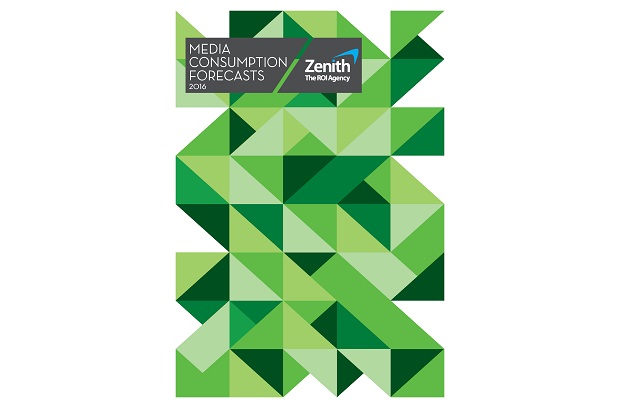Traditional media still dominates worldwide consumption, but mobile is set to account for 26% by 2019 despite slowing growth, according to new research.
The study, from Zenith Media, indicates that traditional media will account for 69% of global media consumption in 2017.
The average person spent 456 minutes consuming media in 2016, up from 411 minutes in 2010 – that’s an average increase of 2 per cent a year.
Meanwhile mobile Internet use will rise to 26% of global media consumption in 2019, up from 19% in 2016, but still falling short in dethroning traditional media such as newspapers, magazines, broadcast TV, radio, Cinema and outdoor advertising.
People around the world will spend an average of 122 minutes a day accessing the mobile Internet via browsers and apps, an amount that has grown from just ten minutes a day since 2010.
This is the third annual edition of the Media Consumption Forecasts, which surveys changing patterns of media consumption since 2010, and forecasts how the amount of time people allocate to different media will change between 2017 and 2019, in 71 countries across the world.
Mobile growth slows
Mobile Internet consumption increased at an average rate of 44 per cent a year between 2010 and 2016, driven by the spread of mobile devices, improvements in technology and greater availability of mobile-adapted content.
However, the growth in mobile Internet use is slowing as the medium becomes more established. Mobile Internet use grew 25 per cent in 2016, down from 43 per cent growth in 2015, and Zenith expects it to grow 17 per cent in 2017. After 2.7 per cent growth in 2016, it expectss overall media consumption to be essentially static in 2017, then grow by less than 1 per cent a year to 2019.
Mobile now accounts for 71% of Internet use
The amount of time people spent accessing the Internet by desktop peaked in 2014, and in 2015 mobile overtook desktop to become the world’s primary point of access to the Internet. Zenith forecast that 71 per cent of all Internet consumption will be mobile in 2017.
The regions that have embraced mobile Internet use the fastest are North America (where 76 per cent of Internet use is mobile) and Asia Pacific (75 per cent).
Traditional media still account for more than two thirds of consumption
Despite the rapid rise of the Internet, traditional media will still account for 69 per cent of global media consumption in 2017. People will spend an average of 316 minutes a day with traditional media this year, down from 364 in 2010. By traditional media here Zenith refer to printed newspapers and magazines, broadcast television and radio, cinema and outdoor advertising. Most businesses that operate in these media sectors have launched online versions of their operations, and these are counted as Internet operations in this report. So even though traditional media consumption has fallen 13 per cent over the last seven years, traditional media owners will have recaptured some of this lost time on the Internet.
TV remains dominant
Traditional, broadcast TV is still the largest single medium by consumption time, averaging 170 minutes of viewing per day this year, compared to 140 minutes for the Internet, and Zenith expects it remain dominant for the rest of our forecast period. The gap between television and Internet consumption will narrow, however, from 30 minutes in 2017 to just seven minutes in 2019.
“Mobile technology has thoroughly disrupted consumers’ media habits in less than a decade,” said Jonathan Barnard, Head of Forecasting at Zenith. “The pace of change is now slowing – at least until the next disruptive technology takes off.”
“Consumers now expects to be able to communicate and transact with brands at the time and place of their choosing,” said Vittorio Bonori, Zenith’s Global Brand President. “Brands need to respond to and anticipate changes in media behaviour, to build stronger and more durable relationships with consumers and expand their business.”

